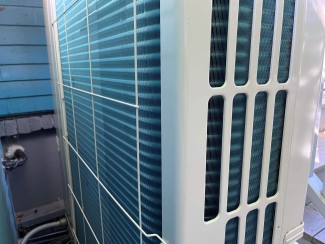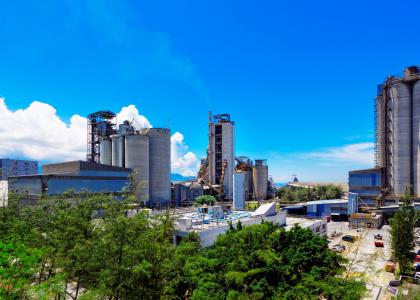The U.S. Department of Energy has selected the American Council for an Energy-Efficient Economy (ACEEE) to lead the Energy Efficiency and Conservation Block Grant (EECBG) Blueprint Cohorts, a key technical assistance program offered to the nearly 2,700 state, Tribal, and local governments throughout the country eligible for EECBG funding. ACEEE, along with a team of partner organizations, will provide training and educational materials to build the capacity of local governments and Tribes as they implement EECBG-funded projects. The EECBG Program provides eligible communities $431 million in flexible federal funds to cut greenhouse gas emissions, improve energy efficiency, and grow renewable energy projects.
ACEEE’s partners that will help manage the Blueprint Cohorts are the Alliance for Tribal Clean Energy, C40 Cities, Elevate, the Electrification Coalition, Emerald Cities Collaborative, Housing Sustainability Advisors, the National Association of Energy Service Companies, Solar Crowdsource, and the Center for Impact Finance at the University of New Hampshire’s Carsey School of Public Policy.
The bipartisan infrastructure law signed by President Biden in 2021 dedicated $550 million to the EECBG Program to help jurisdictions across the country accelerate their efforts to reduce climate pollution and boost energy efficiency in transportation, buildings, and other sectors. Under the Justice40 Initiative, local governments and Tribes are encouraged to invest at least 40% of funds to underserved and energy-burdened communities.
“The Energy Efficiency and Conservation Block Grant Program touches nearly every community in the country, injecting sorely needed direct federal investment to help jurisdictions meet their local priorities. It will help localities take tangible steps to ramp up energy efficiency programs, cut fossil fuel emissions, and lower energy bills,” said David Ribeiro, ACEEE’s local policy director. “The impacts of climate change often hit low-income communities and communities of color the hardest, but many cities do not have the resources needed for upgrades that save energy and cut pollution. We’re excited to work with the cities, counties, and Tribes most in need of assistance so we can boost progress among all.”
The Department of Energy has created 13 Blueprints that cities and Tribes can use for programs in areas such as improving energy efficiency in public and private buildings, deploying community solar energy, electrifying municipal transportation fleets, and building public EV charging stations. The Blueprints are designed in particular to provide governments or Tribes with limited staff or less experience working on energy projects with information and inspiration to maximize the use of their EECBG funds.
ACEEE and partners will develop programming and materials around these 13 topic areas. They will create educational materials, provide training for officials with jurisdictions receiving EECBG Program funding, connect them with relevant stakeholders in various sectors, and hold workshop sessions to help local governments and Tribes work through challenges as they pursue their projects. The partners who will help advise jurisdictions on their projects bring deep subject matter expertise and technical know-how in energy efficiency, renewable energy, electric vehicles, and workforce development, as well as proven track records working with local governments of different sizes and with various capacities to deliver successful energy programs.
C40 Cities interim North American regional director Kate Johnson said: “Local governments are critical partners in delivering on the promise of historic federal funding for climate action. As local leaders innovate and apply federal funding to projects integrating equity, energy efficiency, and renewable energy, C40 Cities is proud to partner with ACEEE to ensure that the best practices and lessons learned are shared between municipalities, improving the results for communities across the country.”
Center for Impact Finance at the University of New Hampshire’s Carsey School of Public Policy senior fellow Michael Swack said: “The Center for Impact Finance is looking forward to partnering with ACEEE to provide training that supports municipalities and tribes in lending to promote energy efficiency and carbon reduction. This training will build on the training we have provided to community development financial institutions and banks over the past four years and expand access to capital for clean energy projects.”
Elevate CEO Anne Evens said: “Elevate is pleased to partner with ACEEE and peer organizations in supporting municipalities and tribes in their efforts to bring tangible benefits to their communities through energy efficiency initiatives. The training we will be delivering will provide EECBG grantees the knowledge and skills to create healthier and more resilient communities.”
Electrification Coalition executive director Ben Prochazka said: “The Electrification Coalition is excited to help cities and states transition to electric transportation. Electric vehicles reduce our nation’s dependence on oil for transportation, strengthening our economic and national security. We have over a decade of experience providing technical assistance and are excited to work with ACEEE to leverage our expertise and resources to expand electric transportation in communities across the U.S.”
Emerald Cities Collaborative president and CEO Meishka L. Mitchell said: “Emerald Cities Collaborative is proud to be a part of an amazing team to support efforts to ensure that jurisdictions of all levels of capacity and resources are able to access the Energy Efficiency and Conservation Block Grant program to deliver its benefits equitably to all. The communities with the greatest environmental burdens often have the least amount of resources, but local government capacity should never be an impediment to delivering benefits to communities in need.”
National Association of Energy Service Companies (NAESCO) executive director Timothy Unruh said: “Energy service companies (ESCOs) are key partners to local and tribal governments, designing, constructing, and implementing solutions to upgrade building infrastructure. NAESCO is honored to partner with ACEEE and peer organizations to ensure EECBG grantees have the resources and support needed to implement emissions reduction, energy efficiency, and renewable energy projects.”
Solar Crowdsource founder and CEO Don Moreland said: “Collaborating with ACEEE and a network of dynamic environmental organizations is an exciting opportunity for Solar Crowdsource. We are eager to assist communities in implementing programs to go solar and enhance the affordability and accessibility of solar energy for homeowners, business owners, and nonprofit organizations. By harnessing these benefits, we aim to make a broader impact on alleviating energy burdens for low- and moderate-income families.”
###
The Alliance for Tribal Clean Energy is an Indigenous-led nonprofit that supports the self-determined efforts of Native American tribes to transition away from extractive and exploitive energy systems to a clean and regenerative energy future.
The American Council for an Energy-Efficient Economy (ACEEE), a nonprofit research organization, develops policies to reduce energy waste and combat climate change. Its independent analysis advances investments, programs, and behaviors that use energy more effectively and help build an equitable clean energy future.
C40 is a network of nearly 100 mayors of the world’s leading cities working to deliver the urgent action needed right now to confront the climate crisis and create a future where everyone, everywhere, can thrive. Mayors of C40 cities are committed to using a science-based and people-focused approach to help the world limit global heating to 1.5°C and build healthy, equitable and resilient communities. C40 works alongside a broad coalition of representatives from labor, business, the youth climate movement and civil society to support mayors to halve emissions by 2030 and help phase out fossil use while increasing urban climate resilience and equity.
The Carsey School's Center for Impact Finance (CSCIF) at the University of New Hampshire addresses the role that access to capital plays in turning the tide on widening income inequality and building a more sustainable future for our communities, the nation, and the world. With a successful track record of working within communities and as respected national thought leaders in the field, CSCIF conducts original applied research, develops initiatives, designs programs, and implements financing products, projects, and policies that address societal challenges.
Elevate seeks to create a just and equitable world in which everyone has clean and affordable heat, cooling, power, and water in their homes and communities—prioritizing frontline communities. Our programs, policy agenda, and partners reflect this commitment.
The Electrification Coalition is a nonpartisan, nonprofit organization that promotes policies and actions to facilitate the widespread adoption of plug-in electric vehicles (EVs) on a mass scale to overcome the economic, public health, and national security challenges that stem from America’s dependence on oil.
Emerald Cities Collaborative (ECC) is a national nonprofit network of organizations working together to advance a sustainable environment while creating sustainable, just and inclusive economies with opportunities for all — an approach we call "the high road." ECC develops energy, green infrastructure and other sustainable development projects that not only contribute to the resilience of our metropolitan regions but also ensure an equity stake for low-income communities of color in the green economy. This includes developing the economic infrastructure for family-supporting wages and career paths for residents of such communities, as well as contracting opportunities for women, BIPOC and other disadvantaged businesses.
Housing Sustainability Advisors (HSA) is a consulting firm working at the intersection of climate and community development. HSA strives to improve the health of low-to-moderate income communities across the country through the implementation of climate solutions including decarbonization, electrification and deployment of renewable energy. We partner with housing developers to find new sources of financing to fill gaps, meet requirements, and realize real returns on energy efficiency and green investments.

